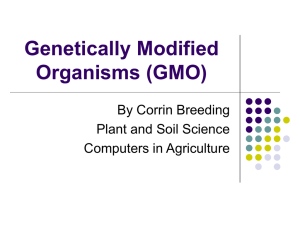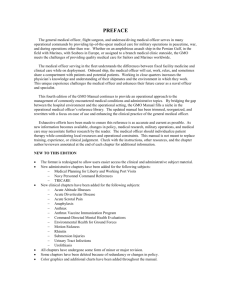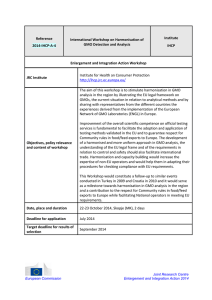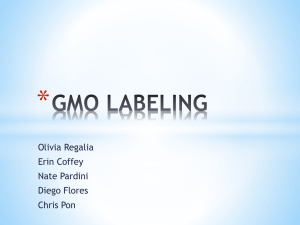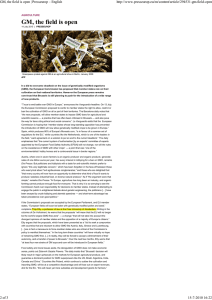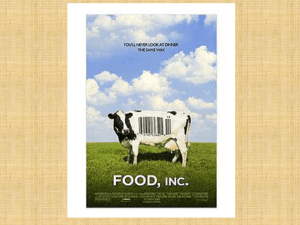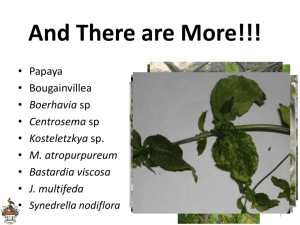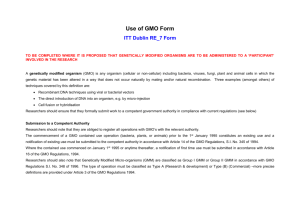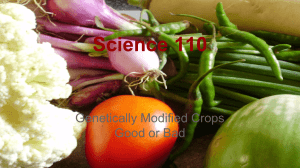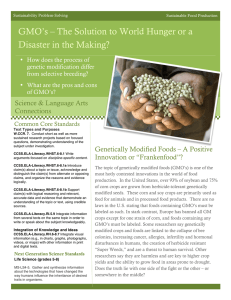Genetically modified food
advertisement
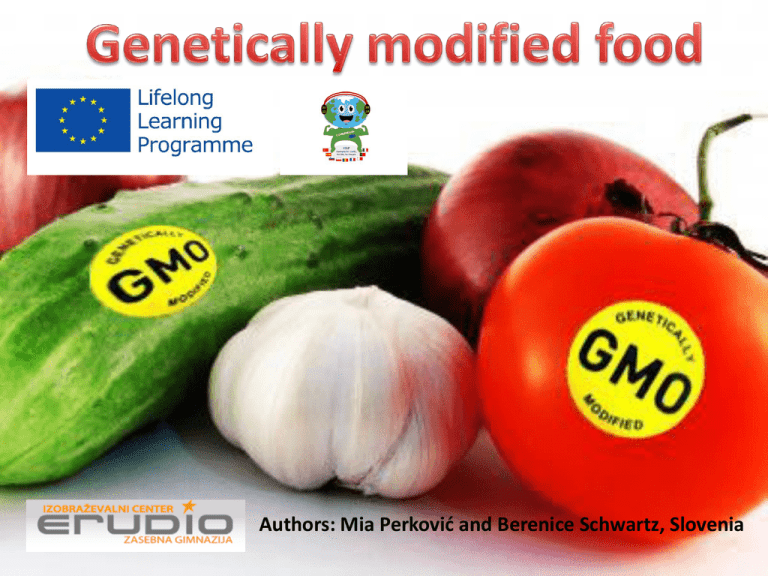
Authors: Mia Perković and Berenice Schwartz, Slovenia What is GMO? Are foods derived from organisms whose genetic material (DNA) has been modified in a way that does not occur naturally, through the introduction of a gene from a different organism. GMO in Slovenia • According to unofficial data there is nearly 30% of genetically modified food in Slovenian store shelves and in America as much as 80%. Golden rice • Golden rice was a Swiss GMO invention for poor children all over the world. Ordnary rice has no vitamin A, alltrough has been only food in some countries and deficiency which is estimated to kill 670,000 children under the age of 5 each year. I dont support GMO but in some cases like hunger all over the world i‘m not against it. Featherless chicken Nutella Venomous cabbage Scientists have recently taken the gene that programs poison in scorpion tails and looked for ways to combine it with cabbage. Why would they want to create venomous cabbage? To prevent caterpillars eat cabbage crops. These genetically modified cabbages would produce scorpion poison that kills caterpillars when they bite leaves — but the toxin is modified so it isn’t harmful to humans. Flavr savr tomato • The Flavr Savr tomato was the first commercially grown genetically engineered food to be granted a license for human consumption. By adding an antisense gene which hoped to slow the ripening process of the tomato to prevent softening and rotting, while allowing the tomato to retain its natural flavor and color. Banana vaccines • People may soon be getting vaccinated for diseases like hepatitis B and cholera by simply taking a bite of banana. Researchers have successfully engineered bananas, potatoes, lettuce, carrots and tobacco to produce vaccines, but they say bananas are the ideal production and delivery vehicle. Label • GMOs in Slovenia are required to have labeling stamp, but we don‘t own or grow many gmo products. Meat, milk , eggs, fish and other foods of animal origin and the animals were fed with are not labeled in Slovenia. The Cartagena Protocol on Biosafety • The Cartagena Protocol on Biosafety to the Convention on Biological Diversity is an international agreement which aims to ensure the safe handling, transport and use of living modified organisms (LMOs).
